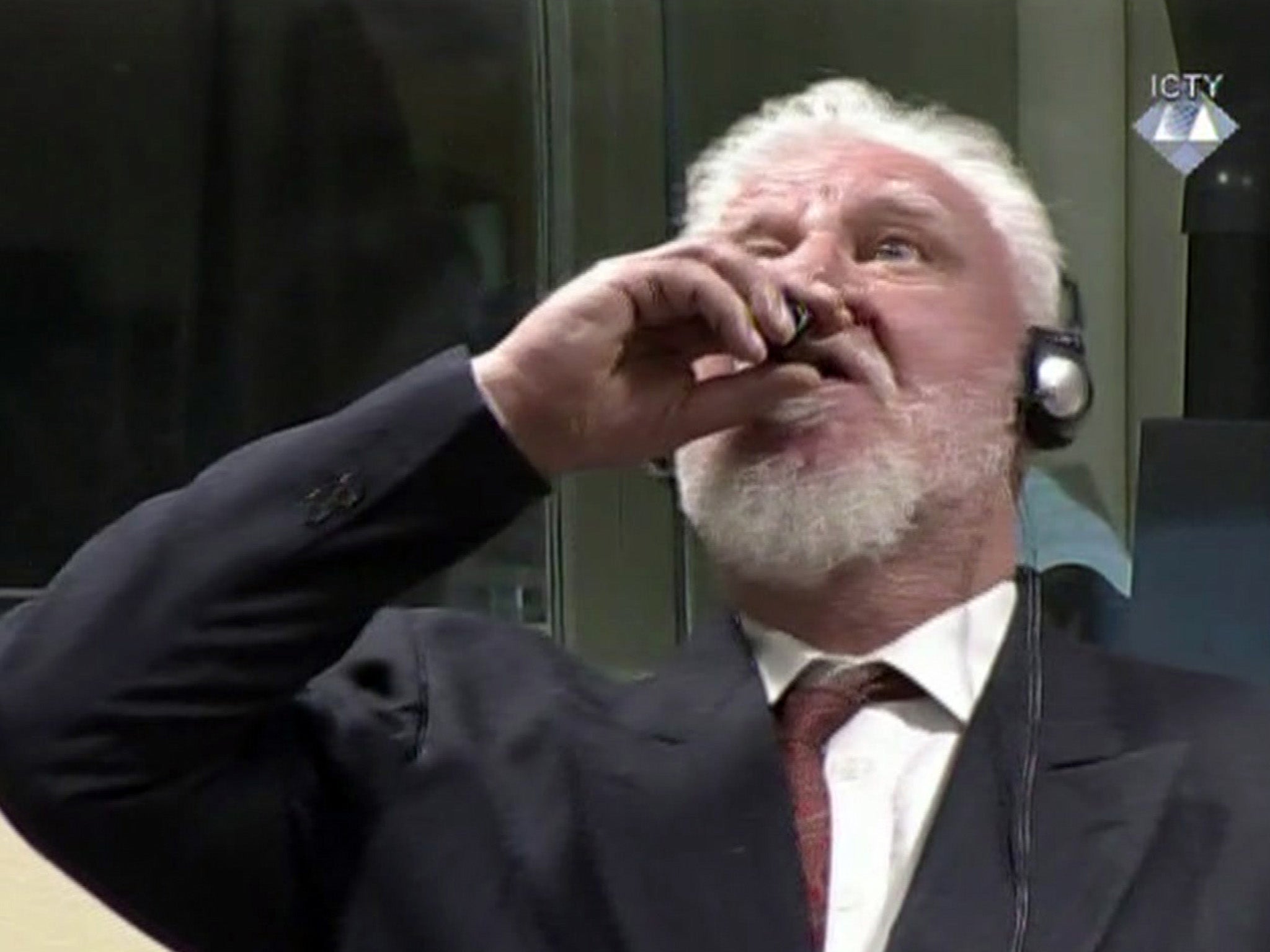Police investigate ‘assisted suicide’ of Slobodan Praljak after war criminal takes smuggled poison in court
Prosecutors will examine how liquid was smuggled into a high-security building

Dutch authorities are investigating an apparent security breach that allowed a Bosnian Croat war criminal to take his own life in a courtroom.
Slobodan Praljak, 72, died in a hospital in The Hague on Wednesday within hours of drinking a vial of poison during the reading of his appeals judgment at the International Criminal Tribunal for the former Yugoslavia.
Prosecutors said the inquiry will focus on assisted suicide and will try to determine how the liquid was smuggled into a high-security building.
Praljak, who was convicted of war crimes in 2013 and sentenced to 20 years in prison, drank the liquid when a judge said his sentence would not be reduced.
He told the court: “I am not a war criminal, I oppose this conviction.”
The court appeared keen to carry on with proceedings, before Praljak told his translators: “I have taken poison.”
He was rushed to hospital but later died.
Vincent Veenman, spokesperson for the public prosecutors office in The Hague said preliminary testing confirmed the cause of death was “drinking a liquid that can kill”.
“We cannot yet say what that substance was,” he said, adding further testing was needed.
Police will look at what the deadly substance was and who provided it, as well as how Praljak managed to get it into the courtroom.
The investigation will also focus on the violation of the Medicines Act.
Speaking to CNN, Croatian lawyer Goran Mikulicic said “anyone could have brought him a bottle of poison easily”, but only lawyers were allowed to bring bags into the detention facility.
Praljak was convicted of crimes against humanity over the persecution, murders and deportation of Bosnian Muslims from territory captured by nationalist Bosnian Croats, who sought to create a mini-state in the country in the early 1990s.
An investigation was launched immediately after Praljak announced he had taken poison and the courtroom was sealed off.
Praljak is not the first war criminal or suspect to take their life while being detained in ICTY detention facilities.
In 1998, Slavko Dokmanovic, a Croatian Serb indicted by the ICTY on charges of participating in the deaths of more than 200 civilians in the Croatian city of Vukovar in November 1991, hung himself in his prison cell.
Milan Babic, the first President of the self-proclaimed Republic of Serbian Krajina, was found dead in his cell after an apparent suicide in 2006 while serving a 13-year prison sentence for crimes against humanity and war crimes against Croat civilians during the conflict in Croatia.
Former Yugoslav President Slobodan Milosevic died in custody suddenly at the age of 64 in 2006, several months before his trial on war crimes charges for his role in the Balkan conflicts was due to end.
An official report by the ICTY said Milosevic died of natural causes and no evidence of poisoning or suicide was found.
In a televised address the day after Praljak took his own life, Croatia’s President, Kolinda Grabar-Kitarovic, said citizens had to admit that crimes were carried out by fellow Croats in Bosnia.
“We Croats need to have the strength to admit that some of our fellow compatriots in Bosnia committed crimes and they have to be held responsible for them,” she said.